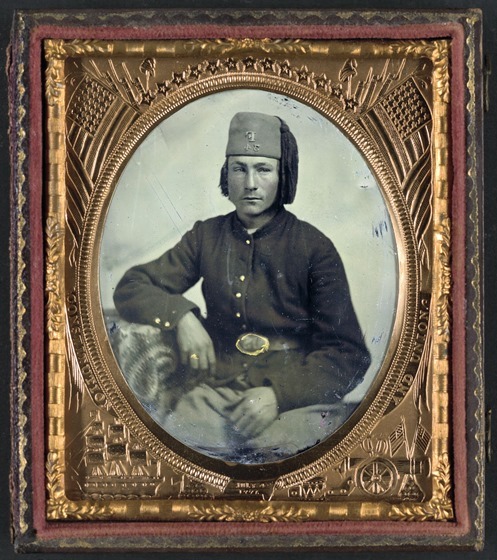(this entry follows the one for October 27th in the book so it is posted here in the same sequence, though dated several weeks earlier)
.
October 6th, 1863.—Yesterday morning we got up with the sun and had a bath and some clean clothes, then came breakfast of corn hoe-cake and fried fish. Mother wanted to pack a basket of eatables for us but Father said we must eat camp fare, so the only thing we brought along in that line was a jar of preserves, for Cousin Joe, and some coffee. Breakfast was fine and when it was over we went fishing, still inside the cove. After dinner we went to Newport and had a bath in the sulphur spring. There we had some delicious October peaches, and we also saw many of our soldier friends in Colonel Scott’s battalion. I admire Colonel Scott most sincerely, he is a Pennsylvanian by birth but he came in early life to make his home in Tallahassee. His home was a little way out of town and his wife and babies were his world. When the war began he volunteered his services to the Confederacy; it had not been expected of him because of his Northern birth, but there is no better friend to the South. He says it is his country. He was in the mercantile business but he has developed unusual military ability and he seems never to tire. Last winter he took cold, being so constantly in the marshy coast region, and rheumatism followed the cold. He still suffers and at times he has to have assistance in mounting his horse, but he drills his men regularly and last night one of the boys told me of the burning of the bridge across the St. Mary’s river.
The enemy were advancing. The only hope of stopping them was to burn that bridge and Colonel Scott and his cavalry were miles away. Night was fast coming on, when the Colonel walked into camp and said, “Boys, I want volunteers to go with me to burn St. Mary’s bridge; we may get back or we may not, I am going.” Very nearly all wanted to go but Colonel Scott picked eight young men, almost boys, the most of them. He was so stiff from rheumatism that they had to put him on his horse, but “there is a spirit in man,” and he led them off in the darkness.
Rapidly they rode; through brake and briar their way lay, but they reached the river not one moment too soon. Each soldier carried, tied to his saddle, a supply of fat pitch pine. The tramp of the enemy’s cavalry could be heard approaching. Lighting their torches, they had the bridge blazing merrily in the twinkling of an eye.
By this time the Yankees were in sight and a howl of rage went up, as they discovered the blaze. Swiftly the gray figures disappeared into the night and, though volley after volley followed them, not one was wounded. Five of the eight I know and am proud to claim as friends.
Tomorrow we go home. Cousin Julia has enjoyed it hugely—apart from the pleasure of seeing her father, it is her first visit to the coast and everything was new to her. I think our Florida coast is more attractive than the Virginia seashore, though it is rank heresy to say so.
 Note – This image has been digitally adjusted for one or more of the following:
Note – This image has been digitally adjusted for one or more of the following:




